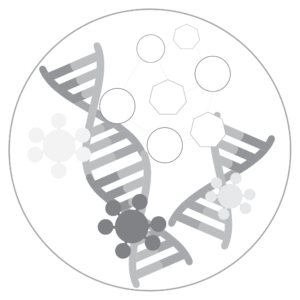
The Molecular Microbiology and Microbial Pathogenesis (MMMP) program is tailored to the needs and interests of the individual student and emphasizes laboratory research, supported by coursework, journal clubs and seminars. The program teaches comprehensive and modern approaches to understanding microbes and the diseases they cause. Our faculty spans both the Medical and Danforth campuses at WashU.
This program includes two major areas of research:
Molecular Microbiology
Research in molecular microbiology employs genetics, cell biology, biochemistry, and biophysics to investigate fundamental biological problems including environmental sensing and cell-cell signaling, transcriptional and post-transcriptional regulation, secretion, energy generation, and the bacterial cell cycle. State-of-the-art computational and comparative genomic approaches are used to study commensal, pathogenic, and environmental organisms in their natural environment.
Microbial Pathogenesis and Host Defense
Research in the molecular biology and biochemistry of pathogenic bacteria, fungi, protozoa, helminths and viruses, with an emphasis on mechanisms of virulence and host-parasite interactions. Applying a wide range of emerging technologies in molecular genetics and cell biology, this work includes the discovery and analysis of virulence-associated genes, the study of innate and acquired immunity to pathogens, and the identification and exploration of novel targets for chemotherapy.
DBBS offers a student-driven course of study that is a flexible, personalized learning pathway designed and led by the student, with oversight and guidance by faculty and staff. This model entrusts and empowers students to take ownership of their education by identifying their academic interests, setting learning goals, and curating a curriculum that aligns with their intellectual passions and career aspirations.
Prospects: Learn more >>>
Current DBBS students: more details here

MMMP graduates pursue a variety of careers. Most program graduates go into academia, but many find paths in industry, government, and other fields, like science communication, law, and business and entrepreneurship.
Faculty Co-Directors:
Graduate Program Administrator: